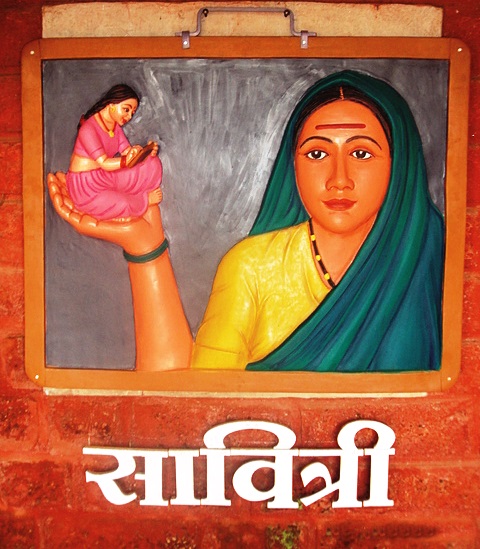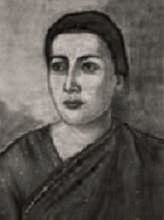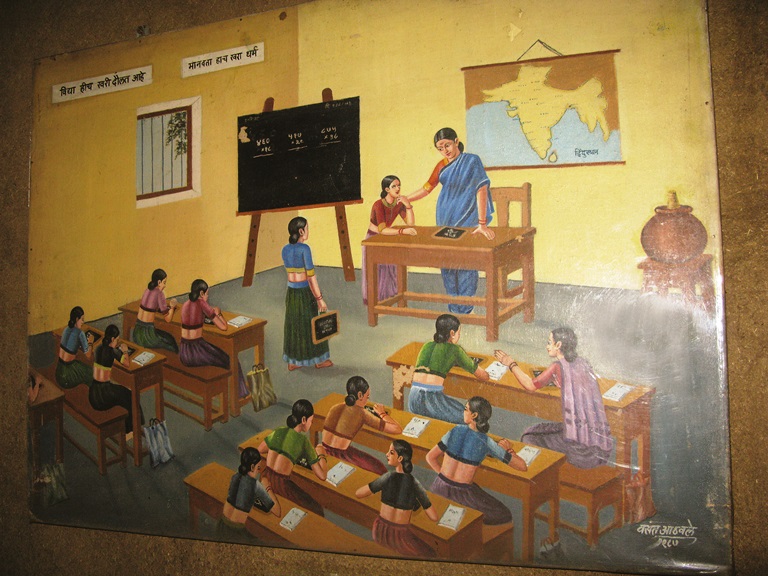The world will never forget two great personalities of the 19th century. One is Savitribai Phule and the other Tarabai Shinde. Savitribai Phule is well known as India’s first woman teacher, headmistress, sensitive poetess and famous social reformer. Tarabai Shinde was the brilliant writer of ‘Stree Purush Tulna’ (A Comparison Between Women and Men) published in 1882. She used her powerful pen to launch a campaign for the destruction of Hindu religion, its mythological scriptures, religious superstitions and the patriarchal notions promoted through them. Impeccable logic informed her well-crafted arguments. Both these heroines of the 19th century hailed from the Bahujan community and they worked in tandem. Today, both these great personalities are remembered for their logical thinking and dedication to their work. They fearlessly took on the contemporary society with the objective of reforming it.
It is heartening to note that over the last couple of years, the grateful Bahujans are trying to tread on the path shown by them. The Bahujan community celebrates Savitribai Phule’s birth anniversary as ‘Girl-child Education Day’ and ‘Sarvashiksha Diwas’ (Education for All Day) with great enthusiasm. Not only that, for the last several years Bahujan social and women’s organisations have been celebrating Savitribai Phule’s death anniversary, 10 March, as ‘Bharatiya Mahila Diwas’ (Indian Women’s Day). They hold some or the other programme on 10 March instead of 8 March. The reason for celebrating ‘Indian Women’s Day’ separately is that the International Women’s Day on 8 March has been monopolised by the rich, English-speaking women of higher varnas. These women draw their inspiration from thinkers and ideologies of foreign origin. That is why the problems and issues relating to the women of Dalit, exploited and deprived communities are ignored on International Women’s Day. These women have no respect for the heroines of these communities, like Savitribai Phule and Tarabai Shinde, and they are not ready to accept them as leaders of women’s movement. Savitribai Phule worked for promoting women’s education and struggled against social evils relentlessly for more than 60 years. But the women’s movement is not ready to accept their role and contribution. If you get a chance, some day pay a visit to the offices of women’s organisations and women’s wings of political parties anywhere in India. You will find them adorned with pictures and quotations of foreign women thinkers. You will not find a single picture of the heroines who fought for the liberation Indian women. This expatriate attitude of the Indian women’s movement is widespread.

Today, the whole world is aware of the pioneering work of Savitribai Phule. She came out of the four walls of her home to teach Dalit and non-Dalit girls at a time when it was a crime for women to cross the threshold of their homes. Cow dung and stones were thrown at her when she went from her home to her school. The rowdies from the upper castes blocked her way. She was abused and her life threatened.

By establishing the first school for girls in India at Budhwar Peth (Pune), Savitribai tried to bring revolutionary changes in the life of Indian women. She opened the doors of wisdom and knowledge for Indian women. This was an unprecedented step in the field of education taken by a Shudra woman in the interest of Dalit and non-Dalit women. In 1849, Savitribai opened an adult education centre for Muslim women and children in the house of Usman Sheikh in Pune. In the same year, she started schools in Pune, Satara and Ahmednagar districts. She formed the ‘Mahila Mandal’ in 1982 for the betterment of the condition of women. In those days, the head of widowed Hindu women was tonsured. Savitribai launched a movement to persuade barbers not to tonsure the heads of widows. Barbers joined the movement in a big way and took a pledge not to tonsure the heads of widows. There is no other example in the world of such a powerful movement against physical and mental atrocities on women which was supported by men in such large numbers. Besides barbers, many other organisations also associated themselves with Savitribai’s ‘Mahila Mandal’.

In those days, widows were sexually exploited by the members of their families including brothers and father of the dead husbands. Many a time, the widows became pregnant. To save themselves from ignominy, such women either committed suicide or killed their illegitimate child. To ensure that such widows do not kill themselves or their unborn children, Savitribai Phule opened India’s first ‘Bal Hatya Pratibandhak Griha’ (Infanticide Prevention Home). As an ideal social worker, Savitribai adopted the son of a widow and educated him to become a doctor. The fact that the name of Savitribai Phule, who swam against the current and launched revolutionary movements is missing from our history, smacks of a conspiracy.
Savitribai groomed many workers like her including Tarabai Shinde, Fatima Sheikh, Savitribai Rode, Mukta, and others. Their names can never be effaced from the history of the Indian women’s movement. Negating the role of Savitribai Phule, who devoted her entire life for a cause, is an insult to the Indian women’s movement. The ‘Savarnavadi’ women’s organisations and their members rarely say a word on issues relating to the Dalit, Tribal and Backward women. Whenever the issue of representation for Dalit, Tribal and Backward women vis-a-vis reservation for women crops up, they dub it as an attempt to break, divide and fracture the women’s movement. Those raising the issue are dubbed casteist.
Just as Savitribai brought the light of knowledge into the life of girls of all castes by opening the doors of education for them, Tarabai Shinde used her formidable writing skills to support the cause of women and oppose the Hindu religion, its scriptures and the brahmanical–patriarchal dogma inherent in it. The brilliant Tarabai, who doggedly fought for women’s right, has become even more relevant in the present time when even the educated are getting caught in the stranglehold of religion and the hypocrisy associated with it. To break this stranglehold, Tarabai Shinde’s essay ‘Stree Purush Tulna’ should be taught in schools and colleges.
Thus, Savitribai Phule and Tarabai Shinde both influenced the world around them through their work, their writings and their revolutionary thoughts. But the fact that neither of them finds mention in the dominant history and in the women’s movement shows how deep are the roots of Brahmanism and the ‘Savarna’ mindset in India. But no matter how deep these roots are, the time has come to dig them up and throw them away.
Published in the March 2013 issue of the Forward Press magazine
Forward Press also publishes books on Bahujan issues. Forward Press Books sheds light on the widespread problems as well as the finer aspects of the Bahujan (Dalit, OBC, Adivasi, Nomadic, Pasmanda) community’s literature, culture, society and culture. Contact us for a list of FP Books’ titles and to order. Mobile: +919968527911, Email: info@forwardmagazine.in)






